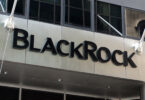The developer of the Corda enterprise blockchain, R3, has cut 90 staff out of several hundred. The company last raised funding in 2018 but secured hundreds of millions in a legal settlement with Ripple in 2019.
“We have reduced our headcount internally spread across most functions,” said a spokesperson. “A decision like this is never easy to make, but it is commensurate with the consolidation happening more broadly across the tech industry as firms look to streamline their operations in the current climate.”
“Ongoing we will be focusing on the roll out and support of Corda and our current customers, extending our capabilities through CBDC build projects, digital assets and tokenization, and working with financial market infrastructures on their modernization and digitization initiatives.”
Last year R3 dropped its second product, the Conclave confidential computing solution. The company acknowledged the restructuring and staff cuts in a blog post.
Most institutional blockchain initiatives are marathons rather than sprints, whether that’s CBDC or the rewiring of capital markets. Hence the need for R3 to conserve capital now that funding for technology firms is scarce.
During the last 18 months several blockchain projects have shuttered, including some that used Corda, such as insurance consortium B3i and trade finance platform Marco Polo.
R3 unveiled its first $107 million funding in 2017 with a breathtaking list of backers, including several systemically important banks. A few of them were HSBC, Bank of America, Wells Fargo, Barclays, UBS, ING and Itaü Unibanco. In 2018, it raised an additional $5 million from forex central counterparty CLS and nothing further since then.
Corda gets traction
Corda provides the backbone for dozens of solutions, including some of the highest profile enterprise blockchain projects. This includes the SIX Digital Exchange (SDX), the host of the largest digital bond issuance – a CHF 375 million blockchain bond from UBS. SDX has participated in multiple wholesale CBDC tests with the Swiss National Bank (SNB) and the Banque de France. In the latest trials this year, it is using a real Swiss Franc CBDC in live transactions.
Another example is HQLAᵡ, which enables big banks to swap collateral and boasts partners and backers such as the Deutsche Börse, JP Morgan, Goldman Sachs, BNY Mellon, BNP Paribas, UBS and ING.
R3 is a U.S. company with a U.K. subsidiary responsible for most software development work. By the end of 2021 the U.K. subsidiary had cumulative losses of £70 million ($87m) based on intercompany transfer pricing. Staff costs in 2021 were £31 million ($39m) and it owed the holding company more than £100 million ($125m).






